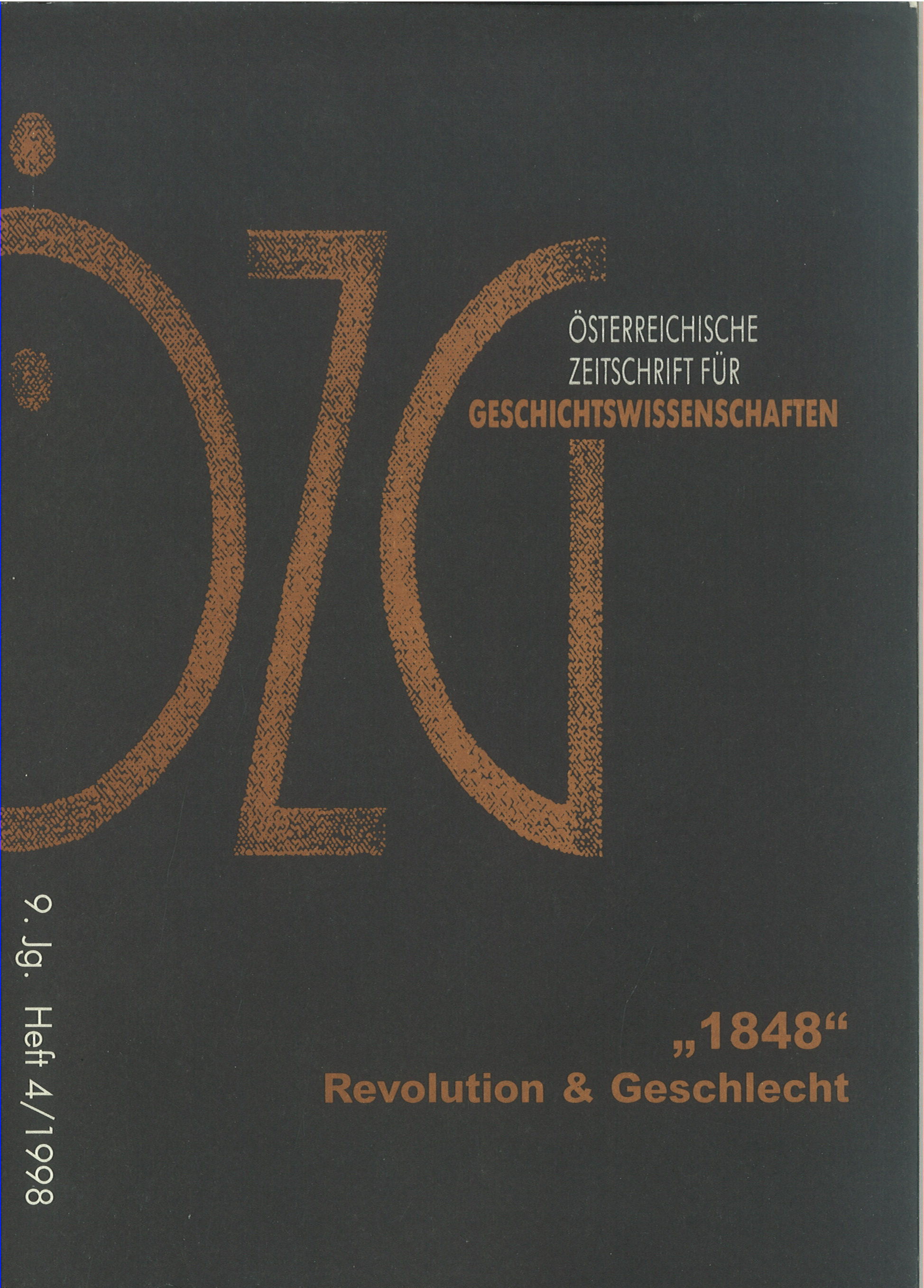"We would have loved to make the whole world glad"
Politics and Gender within the Democratic Circles in the Revolution of 1848
DOI:
https://doi.org/10.25365/oezg-1998-9-4-3Abstract
The construction of the bourgeois gender relations marked the political dimensions of the Revolution of 1848, which was accepted as a common project by contemporary free women and men. The analysis of the complexity of politics requires - in the sense of a "new political history" - not only the consideration of the socio-economic context, of legal structure contexts, but also of the social milieu and of social relations and life-stories. This article deals with gender-specific ambivalences of democratic politics in 1848 with a special focus on social networks, constituted by male and female activists. This makes clear that in the context of exceptional cases e. g. the revolution in Vienna women were able to cross the boundaries of the inability to participate in institutionalized politics often ascribed to women. The Wiener Demokratische Frauenverein (Viennese democratic women's club) was accepted within the democratic milieu as a equal partner and was integrated in the process of the creation of a central committee of the political clubs, the Zentralausschuß der politischen Vereine.


